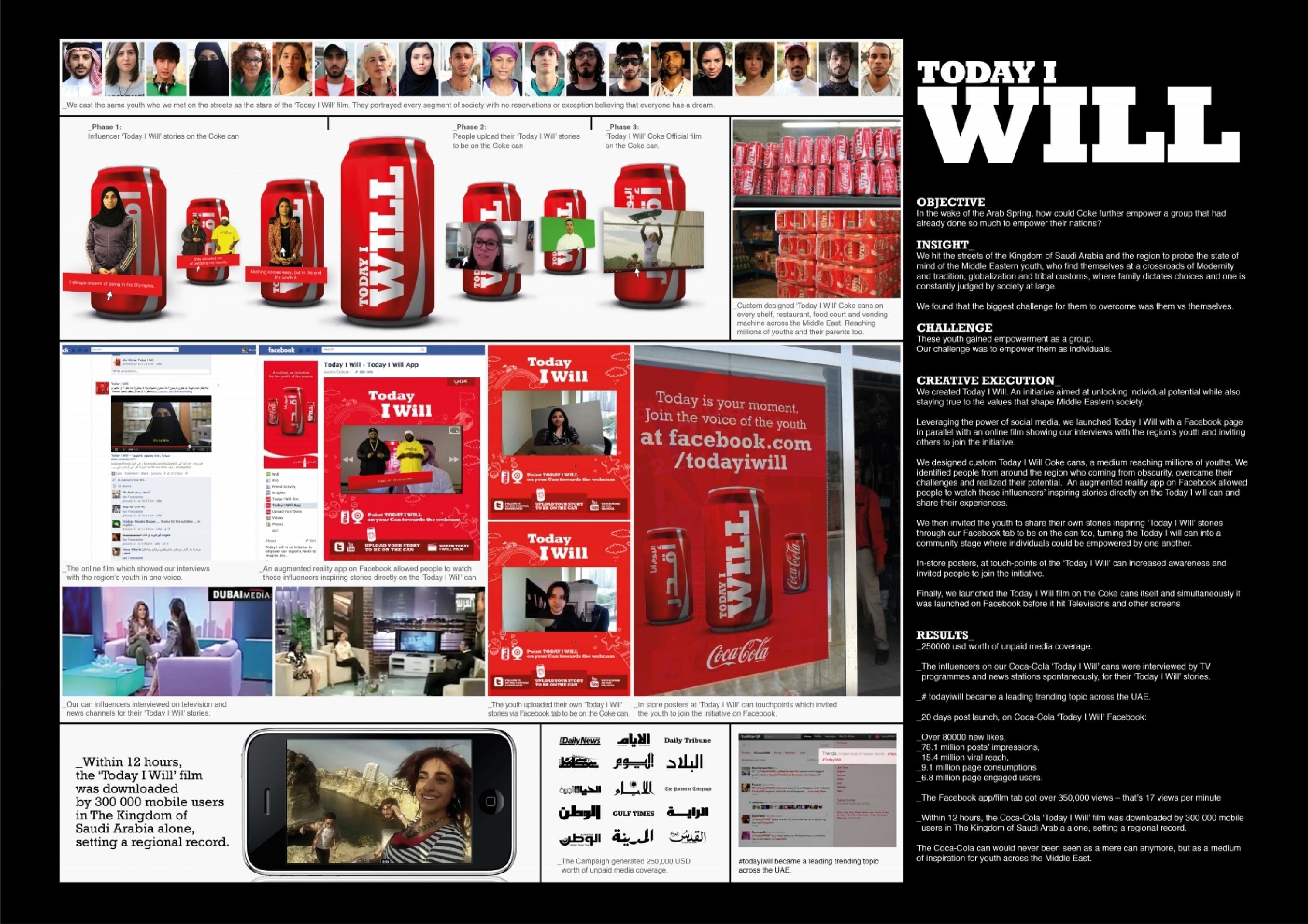PR > PR: Sectors
CHANGE HAS A TASTE
FP7/DXB, Dubai / COCA-COLA / 2018
Awards:

Overview
Credits
OVERVIEW
CampaignDescription
Coca-Cola struck an impact by launching an online film that celebrated women driving.
It consisted showing a path-breaking, never-seen-before, yet a very heart-warming scene in Saudi Arabia: A dad teaching his young daughter how to drive.
A father teaching a daughter how to drive, is something daughters in Saudi Arabia have always aspired for, having seen their brothers and male relatives being taught by dads; but it's something they have never been able to experience - until the law change transpired.
Launched 1 month after the law change, in November 2017, this was the FIRST mass message from a brand about women driving in Saudi Arabia.
Execution
The film shows a dad handing his young veiled daughter the keys to his car, and then sitting in the passenger seat.
The daughter makes several attempts to drive, starting and stopping due to inexperience and anxiety.
With a little nudge from her dad using a Coca-Cola to gauge balance while driving, after a few more failed accelerations and deft saves of the bottle as it falls off the dashboard, she gets more confidence until revving up and driving off.
The film was posted on Coca-Cola YouTube and Facebook platforms.
And WITHOUT paid media support, the film took on a life of its own as it was shared in Saudi Arabia, in the Middle East and around the world, on WhatsApp chats, on Facebook timelines, through reposts on YouTube, on Twitter feeds, on Influencer profiles – ORGANICALLY.
Outcome
Aimed at Saudi Arabia, the content was shared and discussed in 90 countries.
We earned 890 million social media impressions and a total reach of 150 million.
The content triggered 2890 posts and articles, across sites like Newsweek (“A New Side of Saudi Arabia”, USA Today (“A big deal”), La Parisienne (“A strong symbol”), i24 (“Change has a taste”), Fox News, Mashable, The Huffington Post, Adweek, GQ, Popsugar, Riyadh Connect, The Financial Express, Arabian Business, Gulf Insider, Emirates Woman, Chouf Chouf among others.
It generated $3.9 million earned media value.
18% negative feedback and sentiments from Saudi Arabia and abroad, gave Coca-Cola as well as those who loved the content, 18% more opportunities to engage in a conversation around the topic of women driving in Saudi Arabia.
And ultimately, this led to an increase of +22% in Coca-Cola’s brand love in Saudi Arabia, a majority being attributed to women audiences.
Relevancy
Earlier, no one would've imagined a brand in Saudi Arabia showing a woman driving. When women have rebelled and driven in the past, they've been jailed or have had to flee from the country.
With the law-change in September-2017 that allows women to drive starting June-2018, Coca-Cola being a challenger brand behind Pepsi that owns 80% of the market share, needed to get closer to Saudis.
Amidst a backlash to the law-change, Coca-Cola’s message, in the right place, at the right time, driven by the right idea, taking a stand in support of women driving, was the ultimate conversation driver.
Strategy
Because of the backlash from half the country, most brands in the country didn’t celebrate this landmark change nor show their support for it with any form of mass media or public campaign, with only a few brands (Ford, Volkswagen, Jaguar and IKEA) sharing simple social posts.
Pepsi, the market leader in Saudi Arabia in the soft drinks category, with 80% of the market share, chose to remain silent and safe too.
With Pepsi remaining silent on the topic of women driving, Coca-Cola, the challenger brand, that has supported women empowerment in 64 countries over the years, had the chance to get closer to Saudis by not shying away like the rest of the brands (including Pepsi), despite owning only 20% of the market.
The campaign needed to touch upon the brand’s values surrounding diversity and inclusion and aligns with Coca-Cola’s commitment to enable the empowerment of women.
Synopsis
Saudi Arabia is the one rare market, where women cannot drive until this day. It is also one of the rare markets where Coca-Cola has been a distant number 2, with Pepsi owning 80% of the market share. Coca-Cola needed to get closer to Saudis.
In end-September 2017, with Saudi’s Ruler passing a law that allowed women to drive starting June 2018, the country witnessed a landmark change.
While the world congratulated Saudi Arabia, half of Saudi Arabia (primarily constituted of conservatives), has been absolutely against this change, criticising and admonishing the decision.
“The ban on women driving must remain because they ‘lack the intellect’ of men,” (A cleric)
"Expect more accidents.” (Twitter user)
“You can remove the ban, but you cannot force us to let our women drive.” (A private car company owner)
"I swear to God, I will burn them and their cars.” (YouTube user)
More Entries from Food & Drink in PR
24 items
More Entries from FP7/DXB
24 items





